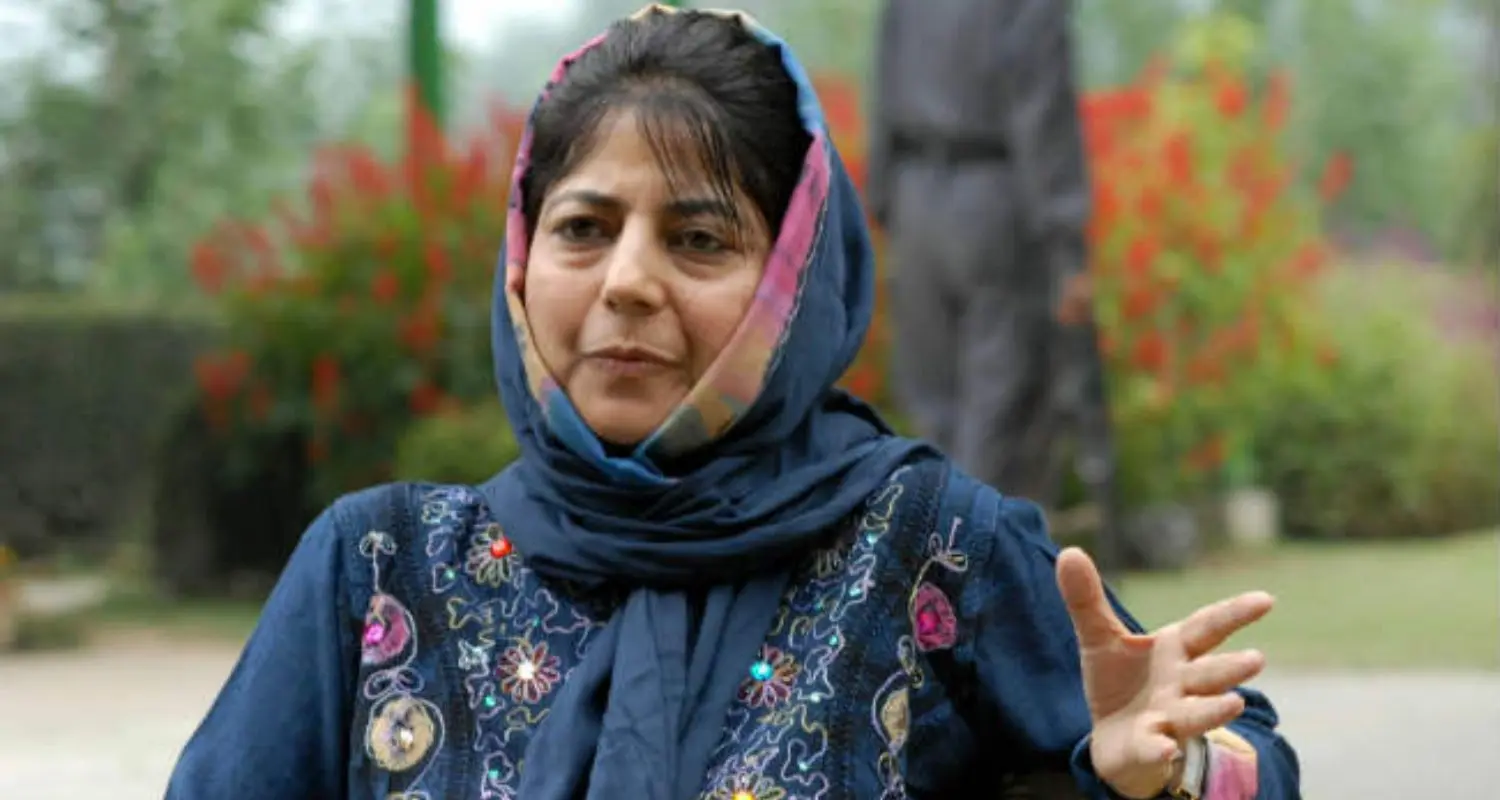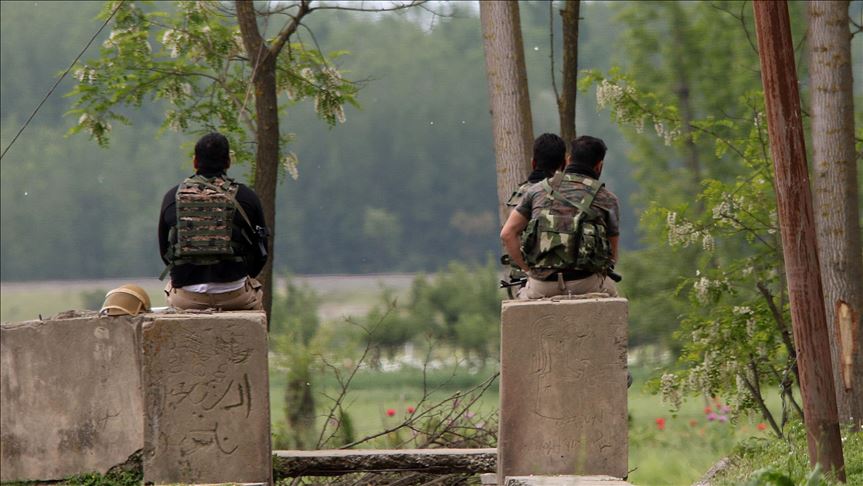Once Called “Ray of Light” by Gandhi, Kashmir Criminalised Now: Mehbooba Mufti
By: Javid Amin | 02 October 2025
From Ray of Hope to Region Under Suspicion
In October 1947, Mahatma Gandhi famously called Kashmir the “ray of light” in a time of darkness, praising its people for refusing to descend into communal violence during Partition. Nearly 78 years later, on October 2, 2025, Mehbooba Mufti—former Chief Minister of Jammu & Kashmir and President of the People’s Democratic Party (PDP)—revived those words but with a painful twist.
Speaking in Srinagar on Gandhi Jayanti, Mufti declared:
“Today, that same Kashmir is being criminalised. Its people are treated like suspects, not citizens.”
Her words were not just political rhetoric. They reflected the growing disillusionment among Kashmiris, who increasingly feel trapped between surveillance, militarisation, and the shrinking space for civil liberties.
The Symbolism of Gandhi’s “Ray of Light”
Gandhi’s Message in 1947
When Gandhi described Kashmir as a ray of light, he was drawing a contrast between the blood-soaked plains of Punjab and Bengal—where Partition massacres were taking place—and the Valley, which remained largely untouched by communal hatred.
-
Peaceful Coexistence: Hindus, Muslims, Sikhs, and Buddhists in Kashmir had resisted the violent polarisation of Partition.
-
Moral Beacon: Gandhi saw in Kashmir a living example of his dream—unity amidst diversity, tolerance amidst chaos.
-
Emotional Significance: For a country scarred by violence, Kashmir became a metaphor for hope and healing.
Mehbooba’s Evocation in 2025
By invoking Gandhi’s words, Mehbooba Mufti sought to highlight how dramatically things have changed:
-
What was once a beacon of harmony is now seen through the lens of security and suspicion.
-
Instead of being celebrated for its resilience, Kashmir today is subjected to detentions, crackdowns, and surveillance.
-
The people once called a symbol of hope are now often treated as potential threats.
The Core of Mehbooba Mufti’s Criticism
01. Centre’s Criminalisation of People
Mehbooba Mufti’s central accusation was that New Delhi treats every Kashmiri as a suspect.
-
Checkpoints and Raids: From Srinagar’s Lal Chowk to South Kashmir’s villages, security checkpoints dominate daily life.
-
Surveillance Culture: Mobile communication, internet activity, and even social gatherings are monitored.
-
Preventive Detentions: Young activists, students, and political workers are detained under preventive laws, often without trials.
She summed it up starkly:
“We are citizens, not criminals. But the Centre wants us to live like suspects in our own homes.”
02. Militarised Governance
Kashmir, one of the most militarised regions in the world, continues to see increased troop deployment.
-
South Kashmir: Recently, reports emerged of heavy troop reinforcements, particularly in Pulwama and Shopian, sparking fear among locals.
-
Control vs. Trust: Mufti argued that the Centre believes “control” is the same as “peace,” but history shows otherwise.
-
Psychological Impact: The constant presence of armed forces has created a climate of fear, especially among youth.
03. Solidarity with Ladakh Protests
Mehbooba Mufti extended her criticism beyond Kashmir, expressing solidarity with Ladakhi activists, particularly Sonam Wangchuk and his associates.
-
Torture Allegations: She condemned reports of alleged torture of Wangchuk’s supporters, calling it “a stain on India’s democracy.”
-
Regional Unity: By aligning with Ladakh’s protests, she broadened the narrative—that governance by coercion is affecting all regions of the former J&K state.
-
Message of Inclusivity: This also signaled an attempt by PDP to reframe itself not just as a Kashmir Valley party but a pan-J&K voice.
04. Call for Political Dialogue
Repeatedly, Mufti stressed the need for dialogue over coercion.
-
Engagement with Regional Parties: She urged the Centre to restore political dignity by engaging elected representatives.
-
Civil Society Involvement: According to her, real peace requires listening to civil society, youth voices, and grassroots organisations.
-
Security ≠ Stability: She warned that security measures cannot substitute for trust.
Broader Political Impact of Her Statement
PDP’s Attempt at Revival
The PDP has lost ground since 2018, when its coalition with the BJP collapsed. Today, with NC leading the coalition government in J&K, Mufti’s remarks represent an attempt to reclaim PDP’s lost space.
-
Civil Rights Focus: By positioning herself as a defender of civil rights, Mufti is targeting disillusioned youth and civil society activists.
-
South Kashmir & Pir Panjal: These regions, once PDP strongholds, are the key audiences for her renewed political messaging.
-
Contrast with NC: While NC is tied up with governance responsibilities, PDP can afford to take a sharper oppositional stance.
Resonance Beyond Kashmir
-
Civil Society Groups: Human rights organisations have echoed her concerns about mass detentions and surveillance.
-
Opposition Parties: Several opposition leaders at the national level see her remarks as part of the larger debate on democracy and dissent in India.
-
Youth Sentiment: In a generation deeply connected through social media but living under surveillance, her words may resonate strongly.
Context: Why These Remarks Matter Now
Attachment of Tehreek-e-Hurriyat Office
Recently, the office of Tehreek-e-Hurriyat was sealed under UAPA (Unlawful Activities Prevention Act). Critics argue this reflects the government’s increasing tendency to criminalise political expression.
Detentions in Ladakh
Sonam Wangchuk’s detention and the crackdown on his associates—who were demanding greater safeguards for Ladakh’s environment and jobs—has added to the narrative of silencing voices across J&K and Ladakh.
Statehood & LG Powers Debate
There are rising demands for the restoration of statehood and curtailing of the Lieutenant Governor’s sweeping powers. Mufti’s statement taps into this growing sentiment that local voices are being marginalised.
Historical Lens: Kashmir’s Journey from “Ray of Light” to “Region of Repression”
-
1947–1950s: Kashmir symbolised unity and resistance to communalism.
-
1980s–1990s: The armed insurgency and counterinsurgency militarised society.
-
2000s: PDP under Mufti Mohammad Sayeed and later Mehbooba Mufti tried a “healing touch policy.”
-
2019 Onwards: Revocation of Article 370, prolonged lockdowns, internet bans, and centralisation of power under LG rule.
-
2025: Continued detentions, surveillance, and loss of political autonomy.
The Human Dimension: Life Under Suspicion
Beyond political rhetoric, Mehbooba’s words capture the lived reality of Kashmiris:
-
Youth at Checkpoints: Young men stopped and frisked daily, creating humiliation and resentment.
-
Digital Monitoring: Social media posts leading to police summons.
-
Psychological Toll: A generation growing up with the feeling that their identity itself is under suspicion.
-
Women’s Voices: Women face both security harassment and the burden of managing households under constant uncertainty.
Can Dialogue Replace Militarisation?
Experts argue that no amount of military presence can guarantee peace if political trust is absent. Mehbooba’s emphasis on dialogue echoes similar warnings by analysts:
-
Security can suppress violence temporarily, but not heal alienation.
-
Inclusive dialogue has historically reduced tensions—as seen in earlier peace initiatives.
-
Ignoring civil liberties risks deepening cycles of anger and alienation.
Bottom-Line: Mehbooba’s Challenge to the Centre
On Gandhi Jayanti, Mehbooba Mufti’s message carried a symbolic weight. By invoking Gandhi’s “ray of light” remark, she forced the nation to reflect:
-
What happened to that light?
-
Can Kashmir ever be restored as a beacon of peace and coexistence?
-
Will New Delhi continue with militarised governance, or will it embrace political dialogue?
Her words may not immediately shift policy, but they rekindle an essential debate about citizenship, dignity, and democracy in J&K.



